O God, who gave your saints Mark and Marcellinus the courage to die for their faith, grant us the strength to live for ours. Through their intercession, help us remain steadfast in our love for You, even in the face of trial and suffering. Amen.
ST. MARK AND MARCELLINUS
ST. MARK AND MARCELLINUS
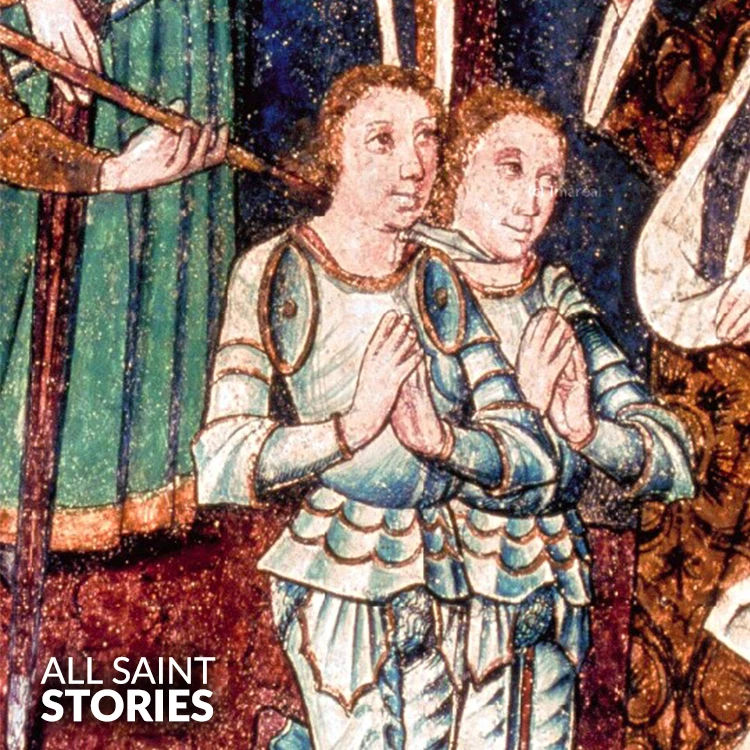
St. Mark and Marcellinus were Roman twin brothers and deacons who were martyred for their Christian faith during Emperor Diocletian's persecution. They refused to renounce their beliefs and were executed in secret. Their feast is celebrated on June 18.
St. Mark and Marcellinus were Christian martyrs of the 3rd century, known primarily through the Acts of St. Sebastian. Born around 250 AD in Rome, they were twin brothers and faithful deacons within the early Christian community. Their lives coincided with the turbulent era of Roman persecution under the emperor Diocletian, who sought to suppress Christianity through a series of brutal decrees aimed at dismantling the Church and forcing Christians to renounce their faith. Mark and Marcellinus were arrested during this persecution and imprisoned for refusing to sacrifice to the Roman gods.
While in prison, their family members visited and pleaded with them to abandon Christianity to save their lives. Despite emotional appeals and the threat of execution, the brothers remained resolute. Their strength was reinforced by the visitation of St. Sebastian, a Roman soldier and fellow Christian, who encouraged and spiritually supported them, inspiring them to stay true to their beliefs even unto death. According to tradition, their faith and determination were so strong that they inspired even their jailers and some of their family members to convert.
Their martyrdom was carried out in secrecy to avoid public veneration, as Roman authorities feared that public executions would only embolden the Christian community. They were reportedly taken to a hidden location in the woods and stabbed to death. Their bodies were later buried in the catacombs of Rome, which became sacred pilgrimage sites in the centuries that followed.
Veneration of the two saints grew rapidly after their deaths. They were commemorated in early martyrologies, and their feast day was set as June 18. Their story remained influential in the early Church, particularly due to its connection with St. Sebastian, whose own martyrdom further amplified the legacy of courage and fidelity exemplified by the brothers. Though little is known about their lives outside of these traditional accounts, their enduring witness is considered a symbol of steadfast devotion during one of the Church’s most difficult periods.
They were canonised before the formal process of canonization was established, which is referred to as “pre-congregation.” The Church began recognizing them as saints due to the strength of their witness and the early devotion of the Christian faithful. Over time, various churches and shrines have been dedicated in their honor, and their example continues to inspire Christians facing persecution and adversity in the modern world.
Video Not Found
The information on this website is compiled from various trusted sources. While we aim for accuracy, some details may be incomplete or contain discrepancies.
If you notice any errors or have additional information about this saint, please use the form on the left to share your suggestions. Your input helps us improve and maintain reliable content for everyone.
All submissions are reviewed carefully, and your personal details will remain confidential. Thank you for contributing to the accuracy and value of this resource.
Credits & Acknowledgments
- Anudina Visudhar (Malayalam) – Life of Saints for Everyday
by Msgr. Thomas Moothedan, M.A., D.D. - Saint Companions for Each Day
by A. J. M. Mausolfe & J. K. Mausolfe - US Catholic (Faith in Real Life) – Informational articles
- Wikipedia – General reference content and images
- Anastpaul.com – Saint images and reflections
- Pravachaka Sabdam (Malayalam) – Saint-related content and insights
We sincerely thank these authors and platforms for their valuable contributions. If we have unintentionally missed any attribution, please notify us, and we will make the correction promptly.
If you have any suggestion about ST. MARK AND MARCELLINUS
Your suggestion will help improve the information about this saint. Your details will not be disclosed anywhere.
© 2026 Copyright @ www.allsaintstories.com

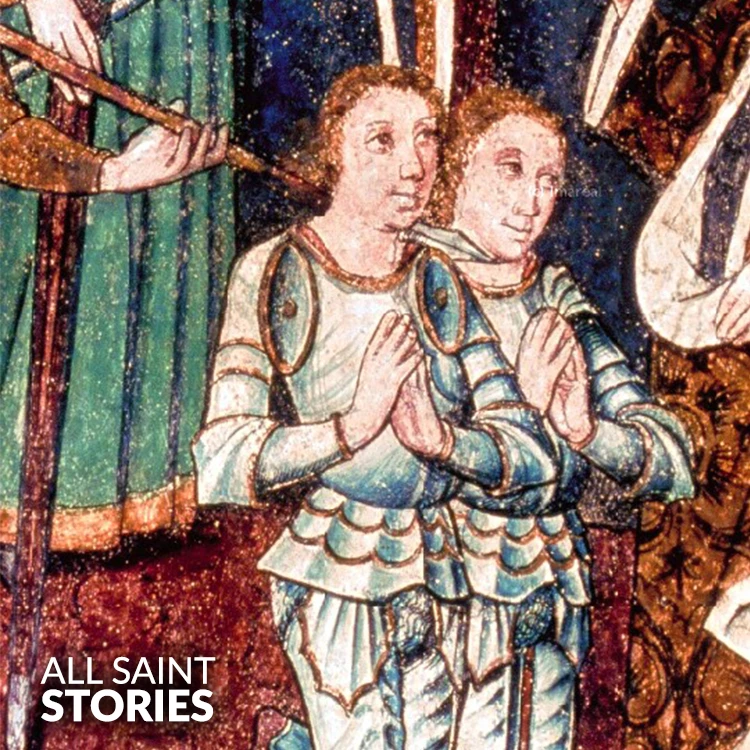
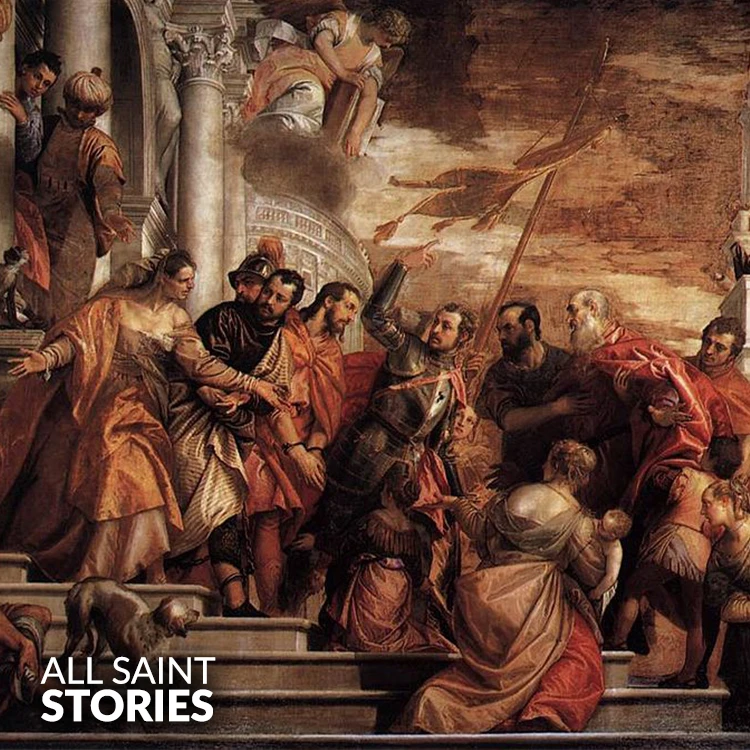
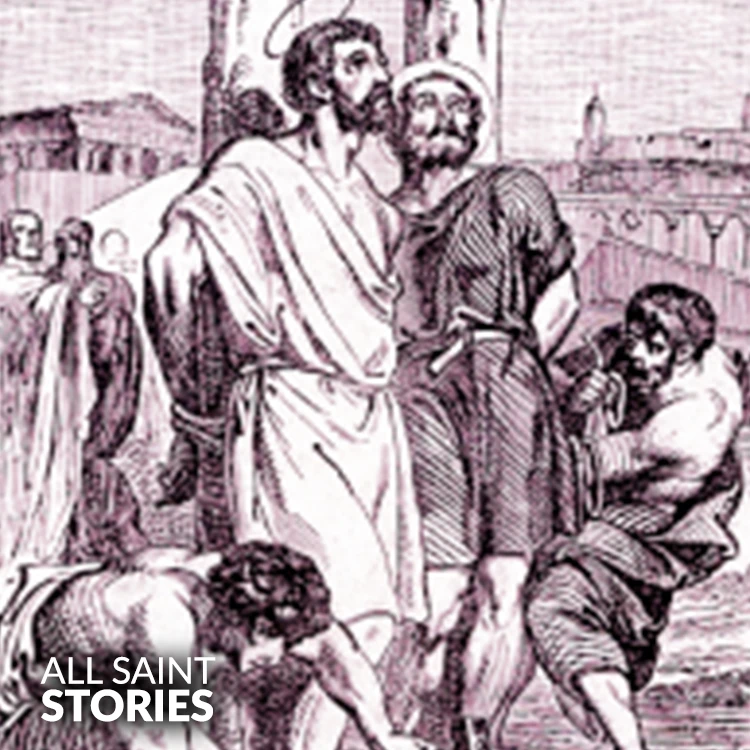
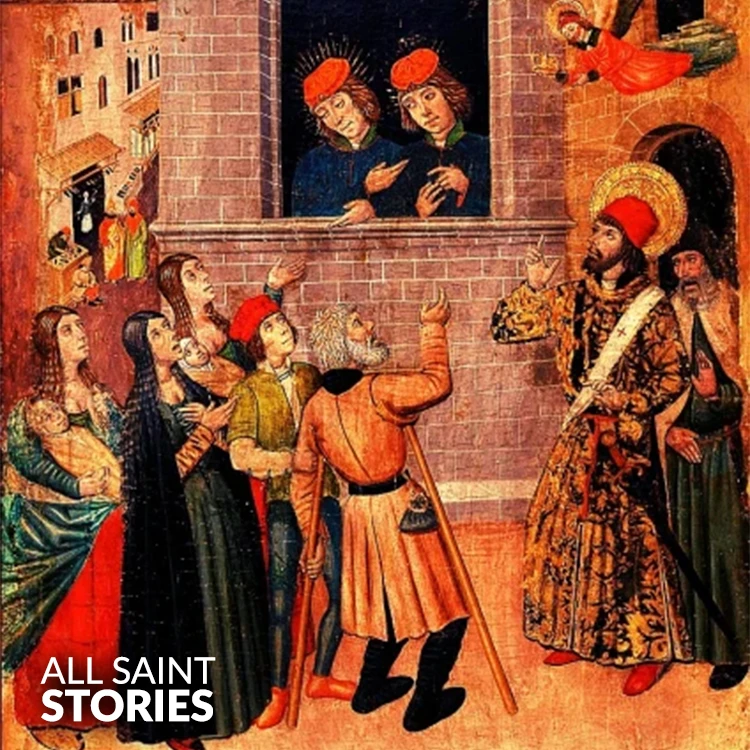
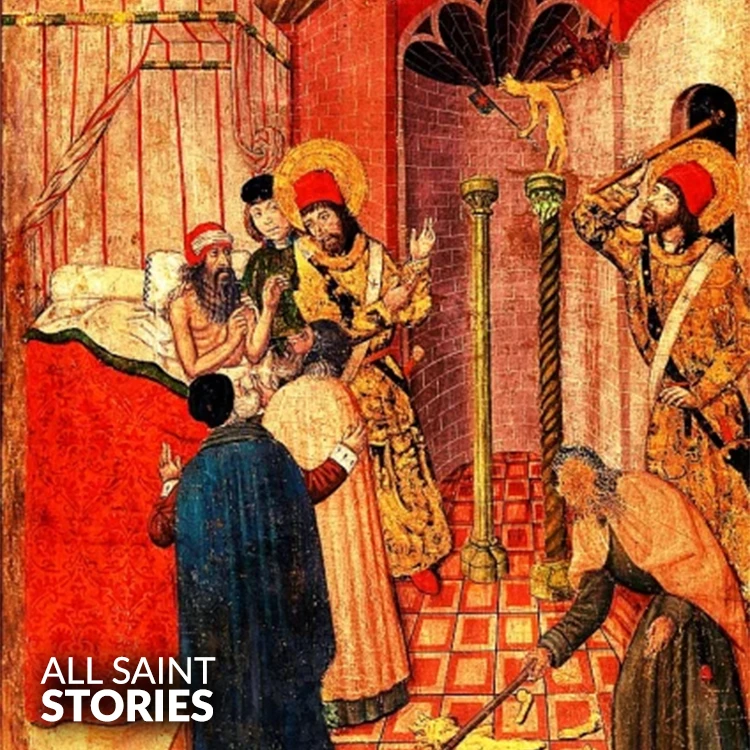

 English
English
 Italian
Italian
 French
French
 Spanish
Spanish
 Malayalam
Malayalam
 Russian
Russian
 Korean
Korean
 Sinhala
Sinhala
 Japanese
Japanese
 Arabic
Arabic
 Portuguese
Portuguese
 Bantu
Bantu
 Greek
Greek
 German
German
 Dutch
Dutch
 Filipino
Filipino